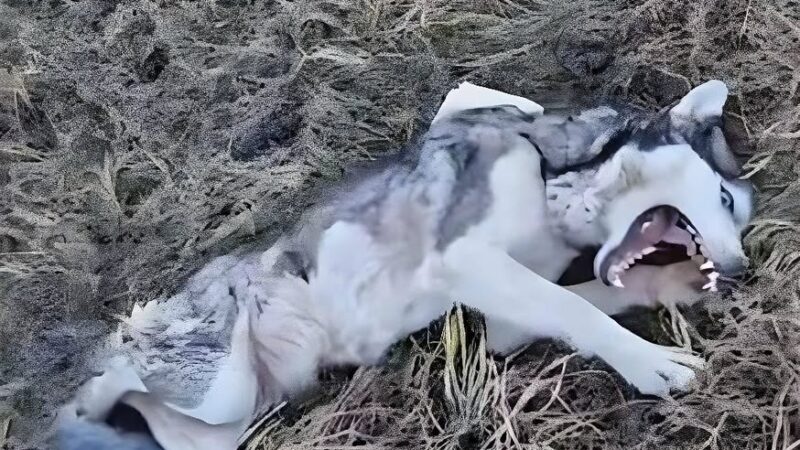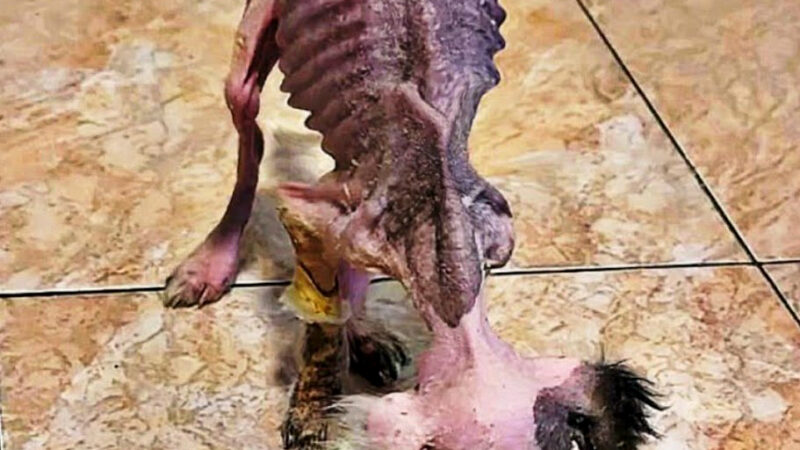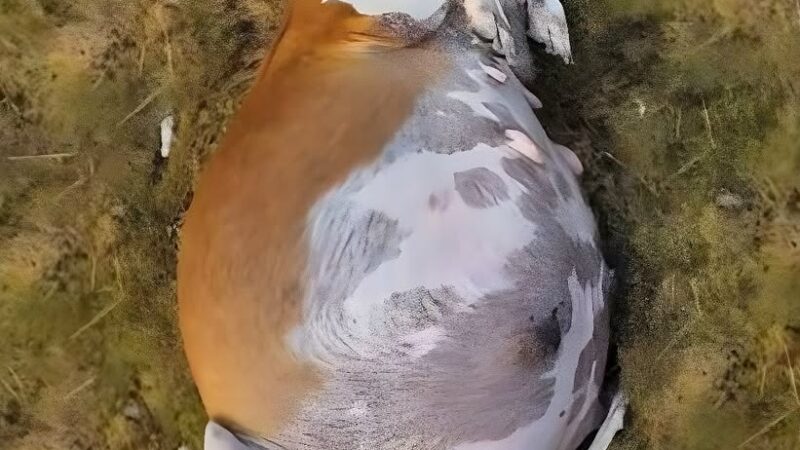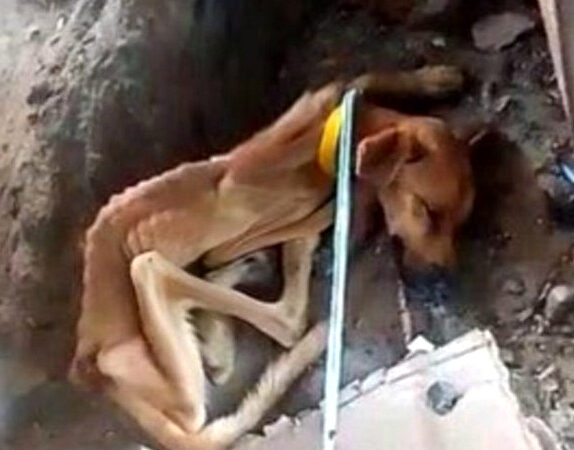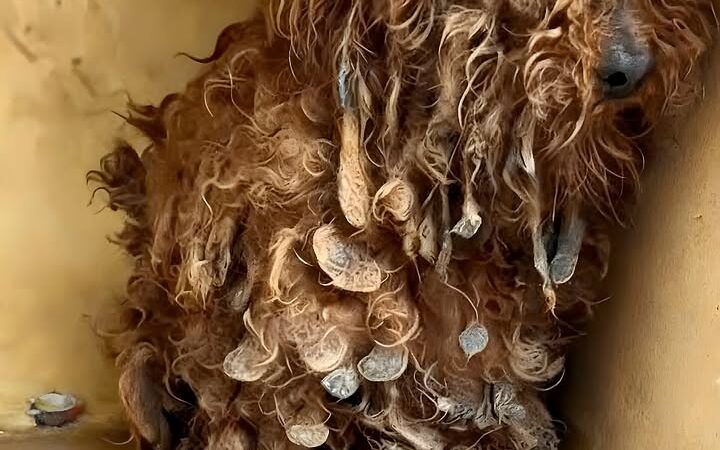She Chose Me: The Unforgettable Story of a Homeless Man, His Cat, and the Promise I Had to Keep

He was homeless and alone, except for Hazel, the orange cat who slept on his chest every night. “She chose me,” he told me. The first time I saw him was outside a 24-hour laundromat, curled up on an old camping mat, Hazel lying on top of him. His shoes were held together by duct tape, worn from hardship. I started bringing him food from my café shift. He never asked, always said thank you, and fed Hazel first. One night, I asked her name. “Hazel,” he said softly. “She chose me. That’s what matters.” I learned his family had cut ties, and shelters wouldn’t take Hazel, so he stayed outside in the cold. Then, suddenly, they were gone—no sign for three nights. This morning, I saw Hazel alone at the bus stop, staring at me as if waiting for him.
A cold dread, sharp and immediate, pierced the morning chill. For a moment, I was frozen on the pavement, the city’s indifferent hum fading into a muted roar in my ears. Hazel didn’t meow or move; she just watched me with an unnerving stillness, her amber eyes holding a question I couldn’t answer. My heart hammered against my ribs, a frantic drumbeat of worst-case scenarios. I crossed the street, my own name a useless word on my lips. “Hazel?” I called softly, crouching down. She didn’t flinch. It was as if she had been expecting me, the only other constant in her and her person’s life. I looked around wildly, scanning the street, the alleyways, the laundromat entrance. Nothing. The worn-out camping mat was gone. The small, neat space they had occupied was now just another grimy patch of concrete, as if they had never existed at all. The only proof was this small, orange creature, a living testament to a life that had vanished into thin air.
My shift at the café was a blur of mechanical motions. I poured coffee, steamed milk, and handed out pastries, but my mind was at the bus stop with Hazel. Guilt gnawed at me. I had never even asked his name. In all those brief exchanges, handing him a warm container of food, I had maintained a careful, unspoken distance. It was the kind of polite detachment city dwellers perfect—a way to show kindness without getting too involved, to ease one’s conscience without shouldering a true burden. Now, that distance felt like a profound failure. He was simply “the man with the cat,” an anonymous figure whose entire identity, to me, was tied to the small animal he cherished. And now, one half of that identity was gone. After work, I went back. Hazel was still there, huddled under the bench, a tiny, defiant flame against the encroaching dusk. The decision wasn’t even a conscious one; it was an impulse born of the sheer wrongness of the scene. I couldn’t leave her. I gently coaxed her into a cardboard box I’d brought from the café, her trust in me a fragile, precious thing, and took her home.
My small apartment felt cavernous and alien to her. She spent the first day hidden under my sofa, a silent, furry ghost. I left out food—the good kind, with real fish—and a bowl of fresh water. He always fed her first. The thought was a painful echo in my mind. I had to honor that. My search began the next day, a futile and heartbreaking quest for a nameless man in a city of millions. I started with the homeless shelters, the very places he avoided. The question was always the same: “Do you have his name?” I’d shake my head, describing him—his tired eyes, his duct-taped shoes, the gentle way he spoke to his cat. I was met with sympathetic shrugs and weary sighs. There were hundreds of men who fit a vague description. Without a name, he was a phantom. I checked hospitals, my voice trembling as I described him to overworked nurses. I walked the streets, showing his photo—a blurry one I’d surreptitiously taken one evening to show a friend—to other homeless individuals, who mostly looked through me, lost in their own struggles.
Days bled into a week. At home, Hazel began to emerge from her shell. She would creep out at night, and I’d wake in the morning to find the food gone. Then one evening, as I sat on the floor reading, she padded silently over and, after a moment of hesitation, rubbed against my leg. A lump formed in my throat. A few nights later, I awoke to a familiar weight on my chest. Hazel was curled there, her purr a low, rumbling engine of comfort and sorrow. She had chosen me, not as a replacement, but as her next port in the storm. Her presence was a constant, living memorial. I saw him in the way she would intently watch a bird outside the window, in the way she’d knead my blanket before settling down. These were the small intimacies he must have known so well. Living with her was like piecing together a mosaic of a man I barely knew, each of her habits a clue to the life they had shared.
I never found him. The official channels were a dead end, and the streets held no answers. The city had swallowed him whole. I was left to imagine the possibilities, each one darker than the last. Had he gotten sick? Had there been an accident? Had he simply decided to move on, seeking a warmer climate, and somehow gotten separated from his only companion? This last thought felt the most unlikely. He would never have left Hazel. His entire existence was structured around her needs, his love for her the one anchor in a life of instability. His choice to endure the cold rather than be separated from her was the most powerful act of love I had ever witnessed. It was a love that defied logic and comfort, a bond forged in hardship and fierce loyalty.
Months have passed now. Hazel is no longer the timid, frightened creature I brought home. She is a confident, affectionate cat who owns my apartment as if it were her birthright. She follows me from room to room, sleeps on my chest every night, and greets me at the door with an expectant chirp. My apartment is no longer just a place I live; it is a home we share. I never learned his name, and I probably never will. He remains a ghost with kind eyes and worn-out shoes. But his legacy is not anonymity. His legacy is Hazel. It’s in the quiet purr I hear in the dead of night, in the responsibility I now feel for this small life. He taught me that home is not four walls and a roof, but a place where you are chosen, where you matter. He couldn’t give Hazel a permanent shelter, but he gave her his whole heart, and in the end, he entrusted her to me without ever knowing it. I look at her, curled on my chest, and I whisper the words he once spoke, a promise to a man I’ll never see again: “It’s okay. She chose me. That’s what matters.”

